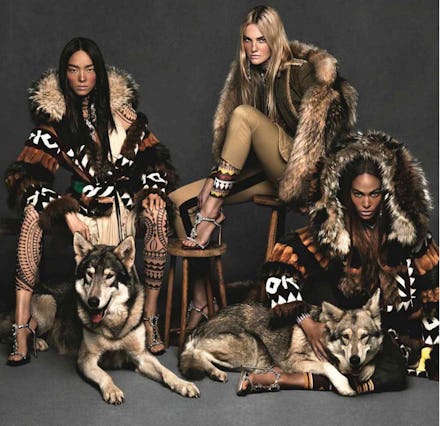It's Almost Totally Legal for Designers and Retailers to Appropriate Navajo Culture

Urban Outfitters won a partial victory in the case that the Navajo Nation filed against it four years ago, Fashion Law reports. The nation sued Urban Outfitters for using "Navajo" on its products — including underwear and flasks.
According to the Navajo Nation, Urban Outfitters' use of the Navajo name violated the Indian Arts and Crafts Act and federal trademark statutes. The Indian Arts and Crafts Act bans marketers from marketing something as made or produced by Native Americans when it is not.
Navajo Nation is the United States' largest recognized Native American tribe, with over 300,000 members and over 27,000 square miles of land.
After their case took a hit in May, New Mexico Federal Judge Bruce D. Black denied Navajo Nation's motion to dismiss Urban Outfitters' trademark fair use defense.
Urban Outfitters claims that "Navajo" is a fair use term that is more descriptive of a style or print than it means that something came from Navajo culture. Urban Outfitters claims Navajo is a "geographically descriptive term" not one that denotes that the Navajo nation produced the accessories.
This means that, to the retailer, the Navajo is not a culture, just a print. Dehistoricizing Navajo designs and reducing them to a print is one of the hugest issues with cultural appropriation. As The Devil Wears Prada's Miranda Priestley would urge, all fashion has a history, and Outfitters' defense denies Navajo's influence on fashion culture.
Navajo fought Urban Outfitters' defense by saying that it cannot prove that "their use of 'Navajo' did not cause confusion."
But, the court said that defense "lacks merit" and Urban Outfitters is free to use the fair use defense in trial. Fashion Law called this "another win for Urban Outfitters."
Read more: